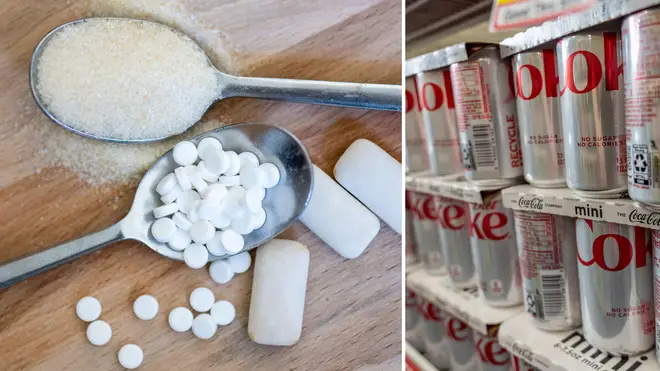
James O'Brien 10am - 1pm
14 July 2023, 06:55

The sweetener used in Diet Coke and other low sugar drinks does not pose a cancer risk at low consumption levels, the World Health Organisation has said.
The sweetener aspartame was subject to a major safety review that means it is now listed as ‘possibly carcinogenic to humans’.
But the WHO has said it is safe to drink.
The current safe intake of aspartame of up to 40mg per kg of body weight means that an 11 stone adult would need to drink 14 cans of a diet soft drink per day to exceed the limit.
Aloe vera, talcum powder and some pickled vegetables have the same classification as possible carcinogens.
Two weeks ago, consumers and the food industry were alarmed by reports that the sweetener could be ruled to be a carcinogen. After the latest ruling, the International Council of Beverages Associations said coverage had “needlessly confused consumers with sensational speculation”.
The WHO said two separate and “complementary” investigations into the sweetener had been completed.
The first investigation said there was ‘limited evidence’ to suggest that Aspartame may cause cancer but said the classification of ‘possibly carcinogenic’ was justified while further research was undertaken.
A second investigation by the Joint Expert Committee on Food Additives (JECFA), run by the WHO and the UN’s Food and Agriculture Organisation, found that “the data evaluated indicated no sufficient reason to change” the current acceptable daily intake, and that that it was “safe” to consume up to the maximum recommended limit.
“Our results do not indicate that occasional consumption should pose a risk to most consumers,” Dr Francesco Branca, Director of the Department of Nutrition and Food Safety at the WHO, said.